Project Outcomes 2019-20
Assessment of Boiler Technologies and Efficiencies (2019-20)
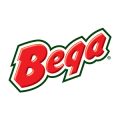
Project outcomes
Select the following heading to read more about the Project Brief
Description of the project:
Sustainability is a key strategic pillar in Bega Cheese. Within the business we have projects that focus on Food Nutrition, Packaging, Water, Green house gases and Diversity, inclusion and equality. This project aligns to our sustainability strategy and focuses on the efficiency of one of our boilers. The aim of this project is to evaluate the current boiler our cheese manufacturing site in Bega, Lagoon St and provide data and recommend improvements.
This project has been closed
Project Aims:
Conduct and complete a detailed mass and energy balance of the different processing areas to identify current boiler operation and its baseline efficiency
Calculate the incremental cost of increasing boiler output to meet increased plant production
Identify and review the impact of using alternative fuel sources on the boiler efficiency and their particulates from the stack
Identify any areas of opportunity and develop potential solutions and to address identified areas of opportunity including any capital expenditure or plant modification
Available to:
Undergraduate students in penultimate and subsequent year (including honours)
Postgraduate students
PhD students (coursework and research)
Faculty or Department:
Engineering
Sector:
Dairy
Employment Type:
Scholarship
Applications for this project are welcome from penultimate and subsequent year undergraduates, Masters and PhD students (coursework and research) who are currently enrolled full-time at Monash including for the period December 2019 to end of February 2020.
Selection Criteria:
Your application will be reviewed by senior university members and assessed against the following criteria:
• Quality of covering letter, resume and on-line application including spelling & grammar
• Relevance of your degree to the project(s) you select
• Skills, ability, knowledge and experience relevant to the project (s) you apply for
• Extra – curricular activities (i.e. sports/clubs & societies/memberships)
• Career goals & ambitions
• Academic performance
• Successful completion of group activity
• Successful interview with industry partner
Please note:
Scope for MITI projects are determined by the industry partners, this includes student disciplines and whether they require students at undergraduate, Masters or PhD level.
The final selection of the MITI project team will be made by the industry partner.
Duration:
12 Weeks
Max number of recipients:
2
Application process:
A cover letter and current CV are mandatory requirements of the application process.
Your cover letter should state the following information in a clear and concise manner:
• why this project is of particular interest to you
• an outline of your experience either through work, study or other interests to support your application
• what you can contribute as a member of the team
Data Analytics Dairy Optimisation (2019-20)
Hosted by Bega

Project outcomes
Select the following heading to read more about the Project Brief
Description of the project:
Our focus is to take advantage of advanced analytics and big data to reduce waste and improve production outputs. Ultimately, how does Bega move from data collection for tracking purposes to using data to improve operations and add business value? Across the dairy business (marketing, digital, customer service, R&D, sales, manufacturing) we have multiple data sources, including structured and unstructured data, machine data, and online and mobile data. How do we funnel these various data points into our data management platform (or a temporary data platform/ solution), and analyse the data to answer our business challenges? Beyond improving operations, we’re also keen to get a better picture of our consumer by having a single source of truth, including what creates value across the customer journey.
This project has been closed
Project Aims:
The Data & Analytics Dairy Optimisation project will help lay the foundation for the way Bega uses data. Currently, Bega is only just getting started on its data journey. At the end of the project Bega is wanting to have a good understanding of what data we currently collect and the gaps, the usability of the data, and identify some key business challenges facing the dairy industry, and do we have the data to solve these challenges.
Key project outcome/s:
What’s the key dairy challenges we’re trying to solve, and how can data be used?
What data are we currently measuring, and what other data do we need?
How do we link our different dairy business units data (sales, marketing, digital, R&D, Insights, manufacturing), and external data sources?
How do we get a better picture of our customer, including what creates value across the customer journey and having a single source of truth?
Who’s being hindered in their role based on poor usability of data?
What’s our data architecture, governance and management process?
Available to:
Undergraduate students in penultimate and subsequent year (including honours)
Postgraduate students
PhD students (coursework and research)
Faculty or Department:
Business and Economics
Information Technology
Sector:
Dairy
Employment Type:
Scholarship
Applications for this project are welcome from penultimate and subsequent year undergraduates, Masters and PhD students (coursework and research) who are currently enrolled full-time at Monash including for the period December 2019 to end of February 2020.
Selection Criteria:
Your application will be reviewed by senior university members and assessed against the following criteria:
• Quality of covering letter, resume and on-line application including spelling & grammar
• Relevance of your degree to the project(s) you select
• Skills, ability, knowledge and experience relevant to the project (s) you apply for
• Extra – curricular activities (i.e. sports/clubs & societies/memberships)
• Career goals & ambitions
• Academic performance
• Successful completion of group activity
• Successful interview with industry partner
Please note:
Scope for MITI projects are determined by the industry partners, this includes student disciplines and whether they require students at undergraduate, Masters or PhD level.
The final selection of the MITI project team will be made by the industry partner.
Duration:
12 Weeks
Max number of recipients:
2
Application process:
A cover letter and current CV are mandatory requirements of the application process.
Your cover letter should state the following information in a clear and concise manner:
• why this project is of particular interest to you
• an outline of your experience either through work, study or other interests to support your application
• what you can contribute as a member of the team
Plant-wide CIP Optimisation (2019-20)
Hosted by Burra Foods Australia
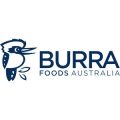
Project outcomes
Select the following heading to read more about the Project Brief
Description of the project:
Adequate cleaning of process equipment is crucial in the safe and efficient production of high-quality dairy products. At Burra Foods, equipment is typically cleaned via a Clean-in-Place (CIP) system incorporating caustic and acid wash stages. An online CIP monitoring tool has been developed by Burra Foods and basic functionality is being utilised, however the system is capable of significantly more.
This project will improve Burra Foods CIP systems by identifying key quality, efficiency, and yield improvements to ensure CIP circuits are operating optimally. Tasks include:
• Review of all major CIP circuits to identify current performance and optimisation opportunities, including review of time, temperature, flow rate, chemical concentration and interface duration
• Quantification of expected benefits from optimisation opportunities
• Implementation prioritisation of workflow for CIP optimisation
• Improving CIP mistake proofing by further extension of the CIP tool
This project has been closed
Project Aims:
Key outcomes of this work will include:
Validation of flowpaths on CIP review tool
Confirmation of current CIP metrics and identification of root cause for failure to meet requirements or issues such as CIP set fouling
Identification of CIP circuits with optimisation opportunities
Delivery of business case to implement CIP optimisation recommendations, with capital request raised where required
Execution plan for improvements of above CIP circuits.
Available to:
Undergraduate students in penultimate and subsequent year (including honours)
Postgraduate students
PhD students (coursework and research)
Faculty or Department:
Engineering
Sector:
Dairy
Employment Type:
Scholarship
Applications for this project are welcome from penultimate and subsequent year undergraduates, Masters and PhD students (coursework and research) who are currently enrolled full-time at Monash including for the period December 2019 to end of February 2020.
Selection Criteria:
Your application will be reviewed by senior university members and assessed against the following criteria:
Quality of covering letter, resume and on-line application including spelling & grammar
Relevance of your degree to the project(s) you select
Skills, ability, knowledge and experience relevant to the project (s) you apply for
Extra – curricular activities (i.e. sports/clubs & societies/memberships)
Career goals & ambitions
Academic performance
Successful completion of group activity
Successful interview with industry partner
Please note:
Scope for MITI projects are determined by the industry partners, this includes student disciplines and whether they require students at undergraduate, Masters or PhD level.
The final selection of the MITI project team will be made by the industry partner.
Duration:
12 Weeks
Max number of recipients:
2
Application process:
A cover letter and current CV are mandatory requirements of the application process.
Your cover letter should state the following information in a clear and concise manner:
why this project is of particular interest to you
an outline of your experience either through work, study or other interests to support your application
what you can contribute as a member of the team
Real time tracking of wastewater flows to drain in a complex, multi-faceted dairy production site. (2019-20)
Hosted by Saputo Dairy Australia
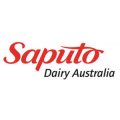
Project outcomes
Select the following heading to read more about the Project Brief
Description of the project:
The Saputo Dairy Australia Allansford site has grown in both size and complexity over more than 130 years of operation. The site takes in approximately 1 billion litres of milk annually, producing a wide range of dairy products including cheese, butter, milk powder, whey powder and liquid milk. Management of water use and wastewater volumes from each production plant is a priority but is problematic due to the complexity of the site. Identifying & understanding individual wastewater streams at source and in real time is critical as it will identify instances of product loss and help with the identification of plant maintenance issues. This will enable early intervention to reduce wastewater volumes and product loss.
The student team will be required to develop a detailed understanding of the site’s production processes and clean-in-place (CIP) processes that generate significant waste streams. The project will focus on identifying and validating in field the key assets within the plant to monitor and to use to develop a drain reporting map for each of the main production plants on site. Working with an in-house IT specialist, the team will generate daily drainage reports for each area of the plant utilising existing equipment and automation data on site.
These reports will be validated in field and used to identify opportunities for water / chemical savings and reduction in product losses for potential immediate implementation by plant management. Changes implemented during the project will be monitored and savings recorded.
This project has been closed
Project Aims:
1) Generation of individual plant and overall site summary waste reports for main production plants through the analysis of major waste streams, identification of equipment and automation to enable real time monitoring.
2) Validation and use of these reports in plant to produce a detailed report identifying opportunities for immediate implementation that will reduce water usage and/or product losses.
Available to:
Undergraduate students in penultimate and subsequent year (including honours)
Faculty or Department:
Engineering-Chemical
Engineering-Mechanical
Sector:
Dairy
Manufacturing
Employment Type:
Scholarship
Applications for this project are welcome from penultimate and subsequent year undergraduates, Masters and PhD students (coursework and research) who are currently enrolled full-time at Monash including for the period December 2019 to end of February 2020.
Selection Criteria:
Your application will be reviewed by senior university members and assessed against the following criteria:
• Quality of covering letter, resume and on-line application including spelling & grammar
• Relevance of your degree to the project(s) you select
• Skills, ability, knowledge and experience relevant to the project (s) you apply for
• Extra – curricular activities (i.e. sports/clubs & societies/memberships)
• Career goals & ambitions
• Academic performance
• Successful completion of group activity
• Successful interview with industry partner
Please note:
Scope for MITI projects are determined by the industry partners, this includes student disciplines and whether they require students at undergraduate, Masters or PhD level.
The final selection of the MITI project team will be made by the industry partner
Duration:
12 Weeks
Max number of recipients:
4
Application process:
A cover letter and current CV are mandatory requirements of the application process.
Your cover letter should state the following information in a clear and concise manner:
• why this project is of particular interest to you
• an outline of your experience either through work, study or other interests to support your application
• what you can contribute as a member of the team
Regional Capacity Project & Milk Strategy (2019-20)
Hosted by Lactalis Australia
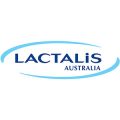
Project outcomes
Select the following heading to read more about the Project Brief
Description of the project:
Lactalis Australia has farm contracts with direct suppliers in specific regions (dairy zones) within most states around the nation. Due to our complex supply chain which is governed by our processing sites and their locations, the milk volume, prospect recruitment, climate conditions and transport destination are all variables that influence how we do business as a whole.
In sourcing our required milk, we want to see the maximum potential from our local communities by modelling and planning our dairy supply strategy. This is to supply our production plants that are scattered through the heart of our country to the four corners from Harvey in WA, Tamar Valley in Tasmania, Rockhampton, Darwin, Adelaide and more (only to mention a few).
In order to maintain this constant supply of milk pumping through our large network, we source from wherever possible and balance between sites by hauling the milk on a daily basis, which can at times create a web of logistical complexity and pressure.
This project will provide the foundations for Lactalis to not only recreate our milk supply by reducing distance between destinations and improve milk quality, but this offset will be given to support our Dairy farmers for their favourable farm locations to our factories.
This project will give students not just the ability to utilise their skills to support the Australian Dairy industry, but will also provide the opportunity to visit both farms and factories throughout Victoria, experiencing how we process and produce this valuable commodity.
This project has been closed
Project Aims:
We hope to develop this model in order to identify and isolate the dairy regions that integrate into our supply chain, optimising our milk movements by giving the benefit to the right farmers in the right spots
Available to:
All Students
Undergraduate students in penultimate and subsequent year (including honours)
Faculty or Department:
Business and Economics
Engineering
Information Technology
Sector:
Agriculture
Employment Type:
Scholarship
Applications for this project are welcome from penultimate and subsequent year undergraduates, Masters and PhD students (coursework and research) who are currently enrolled full-time at Monash including for the period December 2019 to end of February 2020.
Selection Criteria:
Your application will be reviewed by senior university members and assessed against the following criteria:
• Quality of covering letter, resume and on-line application including spelling & grammar
• Relevance of your degree to the project(s) you select
• Skills, ability, knowledge and experience relevant to the project (s) you apply for
• Extra – curricular activities (i.e. sports/clubs & societies/memberships)
• Career goals & ambitions
• Academic performance
• Successful completion of group activity
• Successful interview with industry partner
Please note:
Scope for MITI projects are determined by the industry partners, this includes student disciplines and whether they require students at undergraduate, Masters or PhD level.
The final selection of the MITI project team will be made by the industry partner.
Duration:
12 Weeks
Max number of recipients:
4
Application process:
A cover letter and current CV are mandatory requirements of the application process.
Your cover letter should state the following information in a clear and concise manner:
• why this project is of particular interest to you
• an outline of your experience either through work, study or other interests to support your application
• what you can contribute as a member of the team
Site Water Resource Strategy (2019-20)
Hosted by Burra Foods Australia

Project outcomes
Select the following heading to read more about the Project Brief
Description of the project:
Water resource usage onsite is currently managed piecemeal with various service constraints and quality concerns arising in recent years. This project sets out to achieve a strategic plan for managing water as a resource onsite through 4 main tiers; water for addition, direct product contact, indirect product contact and service water.
Identification of water ‘users’ will be required with service pipework tracing upfront. This initial phase will setup the current state for consideration of future risks from both site expansion and general business maintenance perspectives. From here, with interdepartmental engagement, listing the ideal end point for the 4 main water tiers is a requirement before listing capital upgrade projects in stages across multiple calendar years. Within the strategic capital plan, consideration for control of water quality standards is of utmost importance within each of the water tiers.
This project has been closed
Project Aims:
Detailed site water map for all incoming water to site alongside internal water networks; including service pipework material, sizing, flow capability and current water users
Updated 3-5 year strategic plan for water flow on site including staged capital upgrade and maintenance projects with particular focus on water quality control and asset longevity
Detailed solution for controlling foreign matter and dissolved components in water for key areas such as those post-pasteurisation / final product users e.g. product fillers
Available to:
Undergraduate students in penultimate and subsequent year (including honours)
Postgraduate students
PhD students (coursework and research)
Faculty or Department:
Engineering
Sector:
Dairy
Employment Type:
Scholarship
Applications for this project are welcome from penultimate and subsequent year undergraduates, Masters and PhD students (coursework and research) who are currently enrolled full-time at Monash including for the period December 2019 to end of February 2020.
Selection Criteria:
Your application will be reviewed by senior university members and assessed against the following criteria:
• Quality of covering letter, resume and on-line application including spelling & grammar
• Relevance of your degree to the project(s) you select
• Skills, ability, knowledge and experience relevant to the project (s) you apply for
• Extra – curricular activities (i.e. sports/clubs & societies/memberships)
• Career goals & ambitions
• Academic performance
• Successful completion of group activity
• Successful interview with industry partner
Please note:
Scope for MITI projects are determined by the industry partners, this includes student disciplines and whether they require students at undergraduate, Masters or PhD level.
The final selection of the MITI project team will be made by the industry partner.
Duration:
12 Weeks
Max number of recipients:
2
Application process:
A cover letter and current CV are mandatory requirements of the application process.
Your cover letter should state the following information in a clear and concise manner:
why this project is of particular interest to you
an outline of your experience either through work, study or other interests to support your application
what you can contribute as a member of the team
Towards Zero Net Emissions - Understanding the Energy Profile of our Factories (VIC) (2019-20)
Hosted by Fonterra Australia Pty Ltd
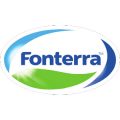
Project outcomes
Select the following heading to read more about the Project Brief
Description of the project:
One of the top three contributors to the cost of dairy manufacturing is energy. This fact, coupled with a vision to move towards net zero emissions by 2050 has influenced a desire for Fonterra to develop an energy strategy that enables less reliance on gas and a shift towards renewables.
This project would analyse the use of energy at the Darnum, Cobden and Stanhope sites and establish a total energy mass balance for each factory. This would also enable the student project team to establish baseline demands, identify possible energy optimisation opportunities and contribute towards the development of an energy strategy to achieve net zero emissions in the long term.
This project has been closed
Project Aims:
Students will have the opportunity to develop a site wide Heat and Mass Balance and accompanying Utility Model/Profile.
Development of the profile will enable the team to:
– establish a baseline for electric, gas and thermal demand at each site
– identify opportunities for process or utility optimisation (particularly around boilers, refrigeration and/or compressors), and
– provide recommendations on utility areas at site that could be serviced by Renewable Energy.
Available to:
Undergraduate students in penultimate and subsequent year (including honours)
Postgraduate students
Faculty or Department:
Business and Economics
Engineering
Information Technology
Science
Sector:
Manufacturing
Employment Type:
Scholarship
Applications for this project are welcome from penultimate and subsequent year undergraduates, Masters and PhD students (coursework and research) who are currently enrolled full-time at Monash including for the period December 2019 to end of February 2020.
Selection Criteria:
Your application will be reviewed by senior university members and assessed against the following criteria:
• Quality of covering letter, resume and on-line application including spelling & grammar
• Relevance of your degree to the project(s) you select
• Skills, ability, knowledge and experience relevant to the project (s) you apply for
• Extra – curricular activities (i.e. sports/clubs & societies/memberships)
• Career goals & ambitions
• Academic performance
• Successful completion of group activity
• Successful interview with industry partner
Please note:
Scope for MITI projects are determined by the industry partners, this includes student disciplines and whether they require students at undergraduate, Masters or PhD level.
The final selection of the MITI project team will be made by the industry partner.
Duration:
12 Weeks
Max number of recipients:
4
Application process:
A cover letter and current CV are mandatory requirements of the application process.
Your cover letter should state the following information in a clear and concise manner:
• why this project is of particular interest to you
• an outline of your experience either through work, study or other interests to support your application
• what you can contribute as a member of the team
